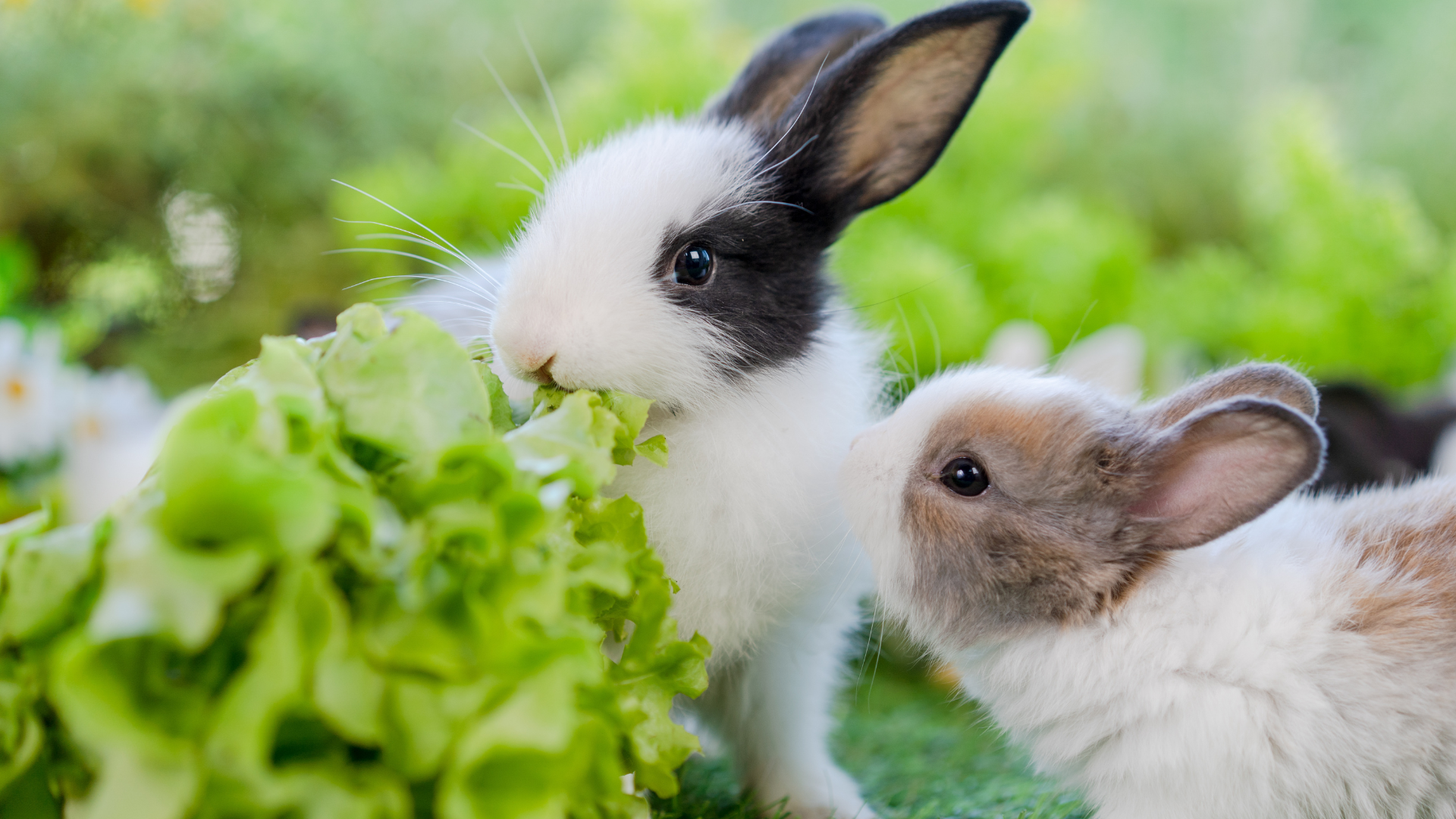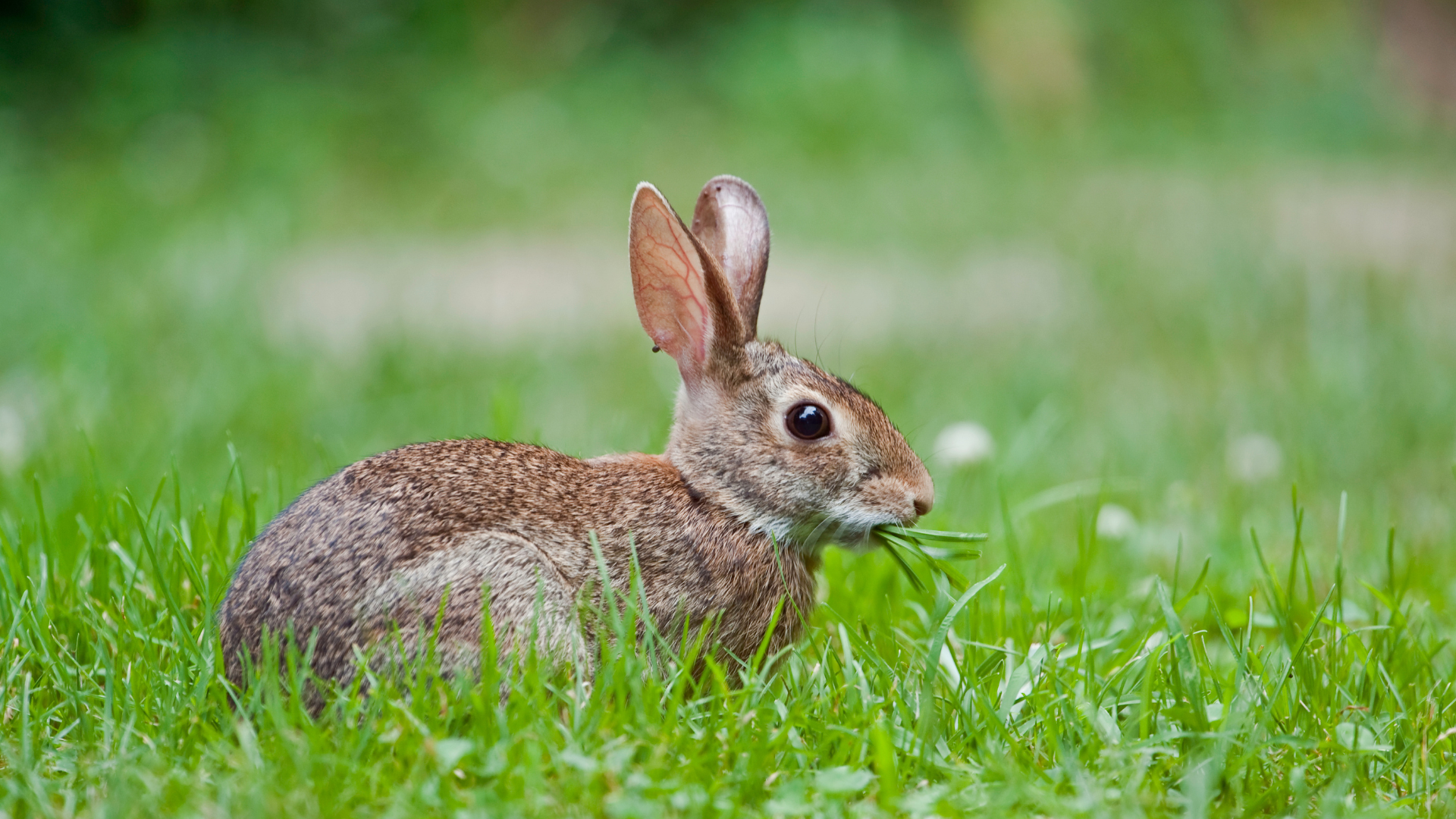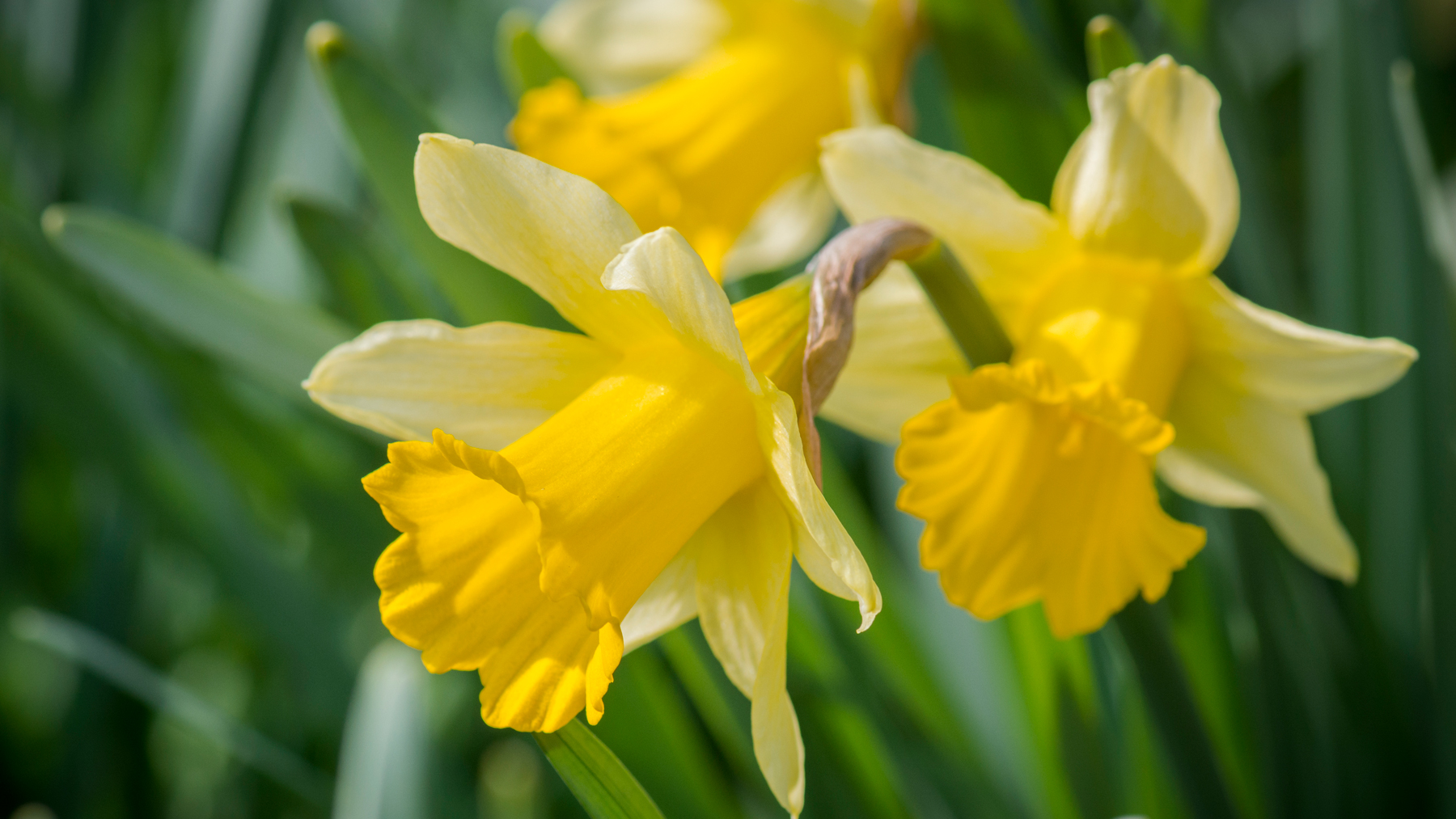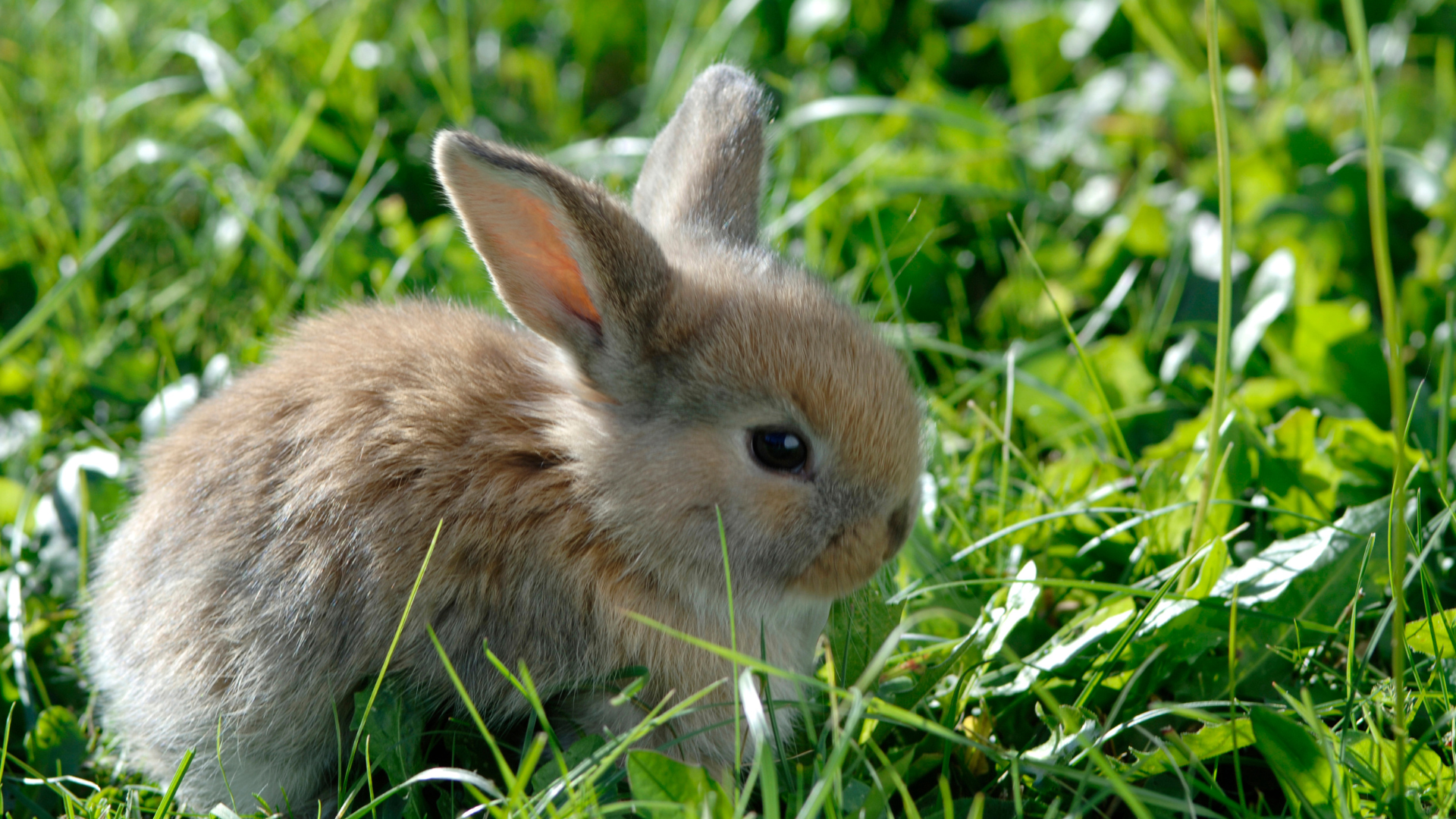
If you're a first-time bunny owner, then you might be wondering what to feed a rabbit. Everyone knows that they love to munch on carrots, but really these should only be given sparingly as treats.
Rabbits are herbivores, which means that they only consume plants. They usually eat the most in the mornings and the evenings, but as grazers, they eat for many hours throughout the day.
Feeding your bunny a nutritional diet is an important part of rabbit care. If you want to find out what you should be feeding them (and the things to avoid), keep on reading. Expert vet Dr. Rebecca MacMillan is here to help with a complete diet plan for you to follow.
What is the best thing to feed a bunny?
Dr. MacMillan says your rabbit's diet should mainly consist of grass, whether it's fresh from your garden or as hay. You can also give them some herbs and leafy green vegetables. You might be surprised to hear this, but they only need a small amount of pellets.
She says: "This may sound dull, but replicating the diet of a wild rabbit is the best way to keep your pet healthy. Rabbits have adapted to consume a high-fiber diet, which helps to keep their teeth worn down and their digestive system in good working order."
Dr. MacMillan also advises feeding your bunny high-quality hay, such as timothy or meadow hay, which is fresh and pleasant smelling. She warns that if the hay is dusty, cheap, or old, it won't have all the nutrients they need and may even contain mold spores if it hasn't been stored properly.

What should I not feed rabbits?
Now you've worked out what to feed them, you might be curious if there's anything they can't eat. Here's a breakdown of what to avoid:
Muesli-mix style food: You've probably seen these loads in the supermarket, but Dr. MacMillan doesn't recommend them. "This is because rabbits will pick out their favorite parts of this food, missing out on vital nutrients and leading to an unbalanced diet. It is far better to pick a good quality pelleted diet, where all pieces are a uniform shape and size.
Mown grass/grass clippings: If your bunny can't eat the grass directly, cut a small amount using scissors and give it to them quickly. "Lawnmowers damage the grass and warm it up, meaning bacteria can multiply on it, potentially making your pet sick."
Sugary treats: It always feels nice to give our pets a treat, but Dr. MacMillan says you should avoid doing it too often. That includes commercial rabbit treats too, like seed bars and yoghurt drops that look like they're healthy. You should avoid human snacks as well. "If these are fed too often, and your rabbit eats them in preference to their normal diet, they could lead to obesity and dental issues."
Certain plants: Bulbs (like daffodils, tulips, and bluebells) are toxic to your bunny. They should also steer clear of holly, ivy, yew, foxgloves, and primroses. "Keep your rabbit away from these plants or remove them from your garden. Make sure that all houseplants are well out of reach from inquisitive rabbits too."

What diet plan do you recommend for a bunny?
Make sure your bunny has access to unlimited hay or grass throughout the day and night. This should make up around 85% of their diet, says Dr. MacMillan.
You can also feed them leafy greens or vegetables to provide extra nutrients - this should be around 10% of their diet. She recommends kale, spinach, rocket, carrot tops, dandelions, watercress, celery, spring greens, basil, thyme and parsley.
The remaining 5% of their diet should be rabbit pellets or nuggets (about a tablespoon). If your bunny is very large or a giant rabbit breed, Dr. MacMillan says you can give them this twice a day.
She says: "I advise owners to scatter this in around the rabbit’s environment or in their hay, rather than placing it in a food dish. This provides good mental and physical stimulation, encouraging natural foraging behavior."
As for treats, these should only be given on occasion and very sparingly as they can cause weight gain and dental problems. They include carrots, squash, apple, pears, melon, and strawberries.
You'll also want to make sure your bunny has unlimited access to water (they prefer a bowl to a bottle or drinker). However, you'll want to be careful that it doesn't get tipped over and no bedding finds its way in.

How much does a rabbit need to eat daily?
The answer to this question all depends on their size and age. However, your bunny should have unlimited access to grass and hay, so there's no need to measure this out - just regularly replace it with fresh hay.
Dr. MacMillan says: "An average-sized rabbit may then have a handful of leafy greens to go with this each day, which you may decide to halve with some in the morning and some in the evening. Pellets should only make up a small proportion of their daily diet, a tablespoon once a day is sufficient (twice if your rabbit is a large or giant breed)."
In summary:
- Unlimited hay or grass
- A handful of leafy greens
- A tablespoon (or two for large rabbits) of pellets
To ensure you spot any issues with their diet and weight early on, Dr. MacMillan says to weigh your bunny frequently and attend regular checkups. This is a good opportunity to ask your vet any questions you may have.
She says: "It is also worth mentioning that if your rabbit goes off their food, then you must speak to your vet right away. Gut stasis can be a serious problem in rabbits, so keep an eye on whether your rabbit is eating normally or not."
You might also like: Can rabbits eat celery? Can rabbits eat broccoli?







